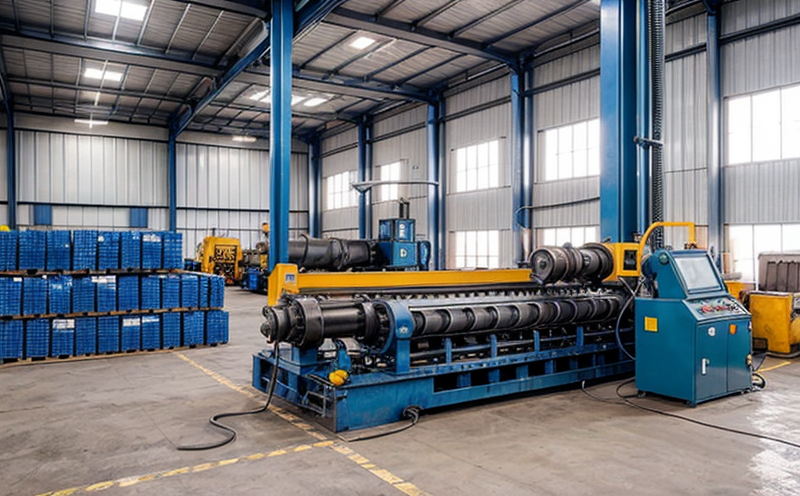IEC 61508 Functional Safety Compliance Testing of Machinery Systems
The IEC (International Electrotechnical Commission) standard, IEC 61508, is a globally recognized framework designed to ensure the functional safety of electrical and programmable electronic safety-related systems. This standard applies particularly to machinery systems that are integral components in industrial settings, where operational reliability and human safety are paramount.
IEC 61508 sets out requirements for the design, development, production, installation, commissioning, operation, maintenance, modification, decommissioning, and lifecycle management of these systems. The standard is essential for manufacturers, quality managers, compliance officers, R&D engineers, and procurement personnel to ensure that machinery systems meet stringent safety criteria.
The functional safety assessment process under IEC 61508 involves several critical steps: hazard identification, risk assessment, system architecture design, software development, hardware design, integration testing, validation, and continuous monitoring. Each step is meticulously documented and validated to ensure that the machinery system can operate safely without posing an undue risk to human life or property.
One of the key aspects of IEC 61508 compliance involves the use of safety integrity levels (SILs). SILs are used to classify the required fault-tolerance and redundancy in a safety-related system. The higher the SIL, the more stringent the requirements for design, testing, and validation.
Testing under IEC 61508 is not just about verifying that a machine works as intended; it's about ensuring that it can withstand various operational challenges and environmental factors without compromising safety. This includes testing under extreme conditions such as high temperatures, vibrations, or power interruptions. The tests are designed to simulate real-world scenarios where the machinery might be used.
| Application Example | Description |
|---|---|
| Mining Equipment | Fault-tolerant control systems for mining equipment ensure that critical operations, such as conveyor belt controls and ventilation fans, continue to function safely even in the event of a component failure. |
| Oil & Gas Pipelines | Control systems for oil and gas pipelines must be robust enough to prevent leaks or explosions. Testing ensures that these systems can handle operational stresses without compromising safety. |
| Automotive Manufacturing Lines | In automotive manufacturing, robotic arms and conveyor systems are tested for functional safety to ensure they operate safely around human workers. |
| Power Generation Plants | The control systems in power generation plants must be resilient enough to handle unexpected failures without causing a cascade of system-wide issues that could lead to accidents or environmental damage. |
- Machinery designed for hazardous environments
- Control systems in process industries
- Safety-critical components used in transportation
Why It Matters
The importance of IEC 61508 compliance cannot be overstated, especially for manufacturers and operators of industrial machinery. Non-compliance can lead to severe consequences, including fines, product recalls, and even legal action. More importantly, it places the lives of workers and consumers at risk.
Compliance with IEC 61508 ensures that safety is a non-negotiable aspect of industrial machinery design and operation. This standard helps prevent accidents that could result in injuries or fatalities. By adhering to these stringent requirements, organizations can build a culture of safety within their operations.
The global nature of trade means that compliance with international standards like IEC 61508 is not just beneficial; it's essential for seamless trade facilitation. Exporters and importers must ensure that their machinery complies with the importing country’s safety regulations to avoid delays or outright rejection at customs.
From a legal standpoint, compliance can mitigate liability risks associated with product failures. If an organization can demonstrate adherence to IEC 61508 standards during audits and inspections, it strengthens its position in court if there were ever a dispute over the safety of a product.
Industry Applications
- Mining Equipment: Ensures that critical mining equipment can operate safely even under harsh conditions.
- Oil & Gas Pipelines: Provides robust control systems to prevent leaks, explosions, and other accidents in the pipeline network.
- Automotive Manufacturing Lines: Guarantees safety-critical operations around human workers by testing robotic arms and conveyor systems for functional integrity.





